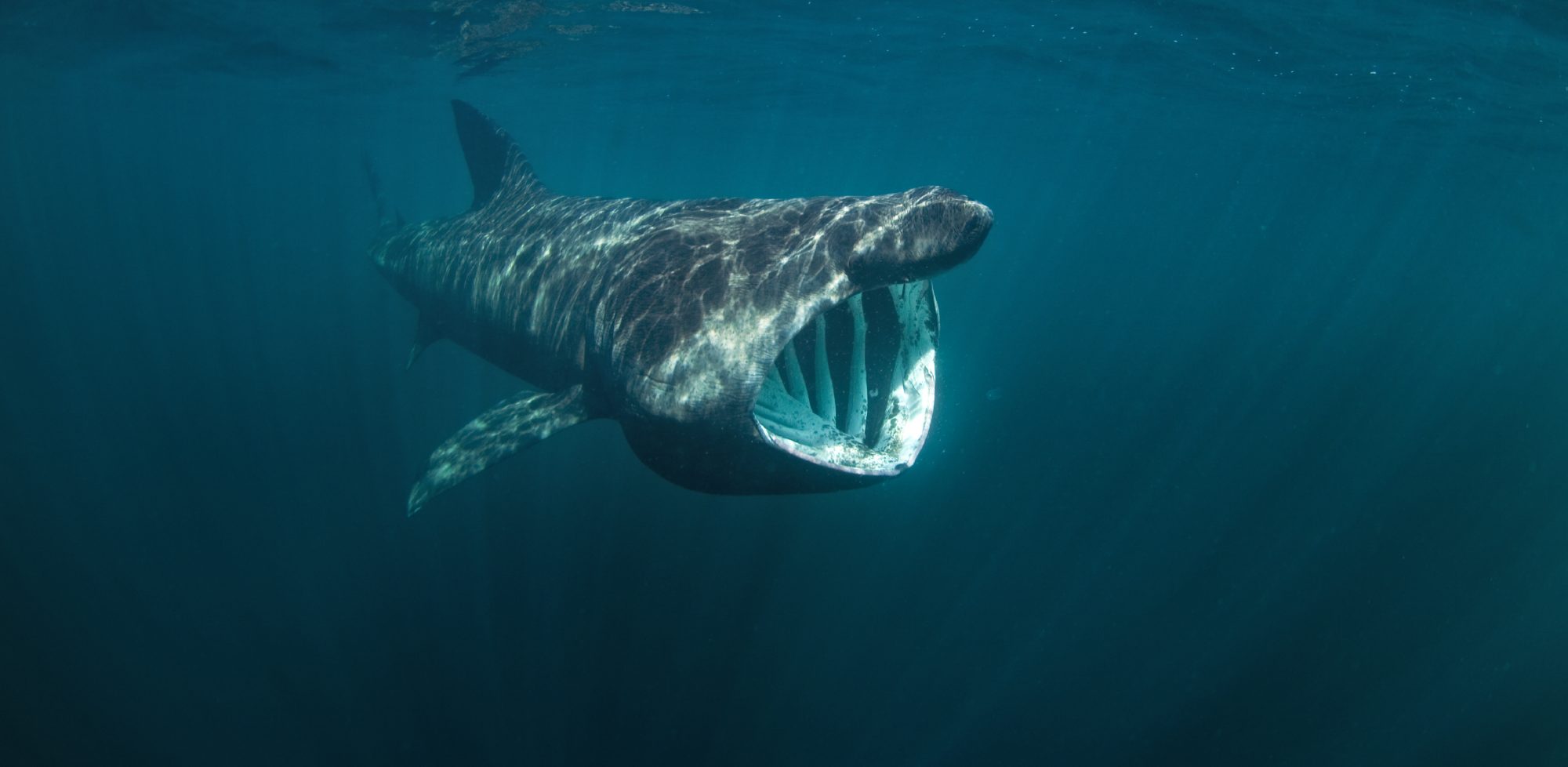How do you become a marine scientist? – by Athena Allen

Grey seals (Halichoerus grypus) on Menai Strait, Isle of Anglesey, North Wales. (Photo by Athena Allen)
Something that became clear through my journey into the field of marine science is how mysterious and, in some cases, unattainable entry into this field can seem to young professionals. Marine science is rarely taught at school, there are an extraordinary number of habitats and organisms on which to specialise, and despite its recent spike in popularity it is not a career choice that is often made. A combination of these factors makes it rare to find two marine scientists who made it into the sector on the same path. The unique nature of the development of each marine career can make embarking on this journey difficult for students and young professionals. However, the essential role played by the marine environment in the health of our planet makes understanding these incredible ecosystems more important than ever.
So, what can you do to get yourself a position in this fascinating and fast-moving field?
Where do I begin?
The first, and arguably most important, step to building a career in marine science is a passion for the marine environment. This isn’t to say that you must immediately identify an animal or habitat in which you would like to specialise, as this is a daunting task to start with. However, an overall passion for and interest in the marine environment, whether that is an interest in how marine organisms adapt to life at sea, how marine ecosystems work as a system, or how we can use the sea as a resource, is a great place to start. Personally, my interest in the marine environment stemmed from childhood summers spent on the beach, both in the UK and abroad, looking for animals in rockpools or admiring fish in the shallows.
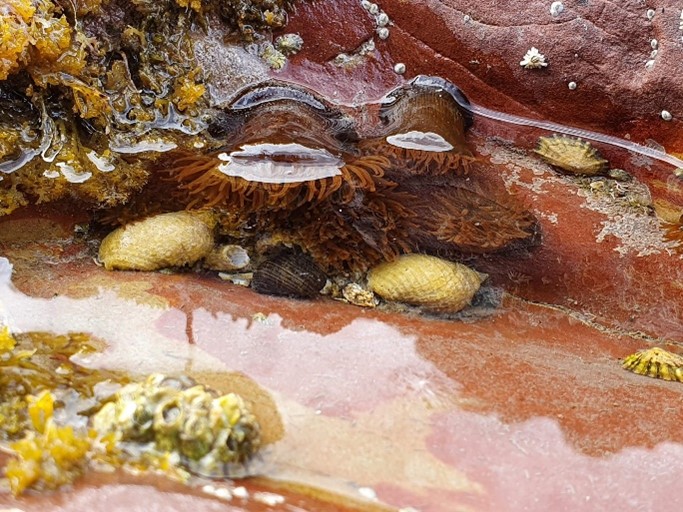

Common rockpool creatures found on UK shores (including Actinia equina, Nucella Lapillus, and Anemonia viridis). (Photos by Athena Allen)
As well as a passion for the marine environment, a passion for its conservation is important. With marine habitats often exploited by damaging human activities (e.g. fishing) alongside having to adapt quickly to human-driven climate change, the health of the marine environment is under threat. As a marine scientist or conservationist, you can have a hand in driving positive change for the protection of these amazing habitats. Advocating for policy and environmental legislation as well as evidence-based research and solutions is a key role played by marine and terrestrial conservationists across the globe. It is important to be passionate about playing your part in ensuring that we utilise marine resources, but do not abuse them. Demonstrating this passion for positive change can be as simple as showing support for environmental policies on any scale, for example signing local petitions for the protection of local habitats.
Education
There are many diverse university courses on offer in the marine field and, depending on your area of interest, you can select a course which will allow you to specialise your knowledge. Some courses, such as Oceanography, focus on the physical nature of the oceans, wave structures, tides, and currents. Others, such as Marine Biology and Ecology, focus on marine ecosystems and the organisms inhabiting them. The interaction between these marine systems and human activity in the oceans can also be studied under courses such as Marine Environmental Protection and Marine Environmental Law. These courses can be studied across the UK, at universities stretching from Aberdeen down to Southampton and from Bangor in North Wales across to Essex. University degrees allow you to develop your knowledge in the topic area and refine numerous skills which are sought after by employers, for example statistical data analysis, report-writing, fieldwork, and ecological mapping.
However, further education is not essential for a career in marine science, and there are routes that can be taken into the field which do not require a degree. Marine conservation is a hands-on field and often assistants or interns are sought after to help scientists with large scale projects. Furthermore, citizen science projects are always looking for volunteers, and often allow exposure to different marine environments. Learning on the job is a great way of making tracks into the field and building your knowledge and contact network without the need for formal training. This applies to those who are starting out their careers, and those who are interested in a career change into the marine field.
Volunteering and citizen science
Volunteering is often an excellent way to increase your exposure to essential skills in marine science. There are numerous companies across the world that offer volunteering experiences ranging from national aquariums to coastal turtle conservation projects. These positions can introduce you to working with marine organisms, working with the general public in outreach projects, and learning the inner workings of large-scale conservation efforts. Whilst these experiences will allow you to develop your skills, they are also frequently expensive and can be inaccessible as a result. More accessible volunteering can be found closer to home, in the form of citizen science projects.
Citizen science initiatives are available across the UK and allow you to expand your knowledge using a hands-on approach. Examples include marine mammal sighting reporting, seaweed searches and beach cleans with the Marine Conservation Society [1], intertidal surveys with local Wildlife Trusts [2], and stand-alone projects such as The Rockpool Project [3]. These projects often do not require any travel and you can help out by reporting the plants and animals found along your local shoreline, making the experience more inclusive. Projects are also often run by marine scientists, allowing you to begin growing a professional network in the field. Experience of taking part in a scientific study as well as a growing network of colleagues in the field will make any aspiring marine scientists more attractive to potential employers.
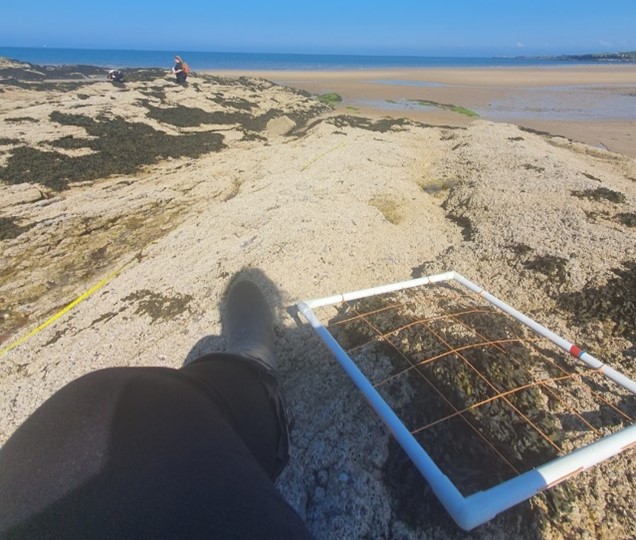
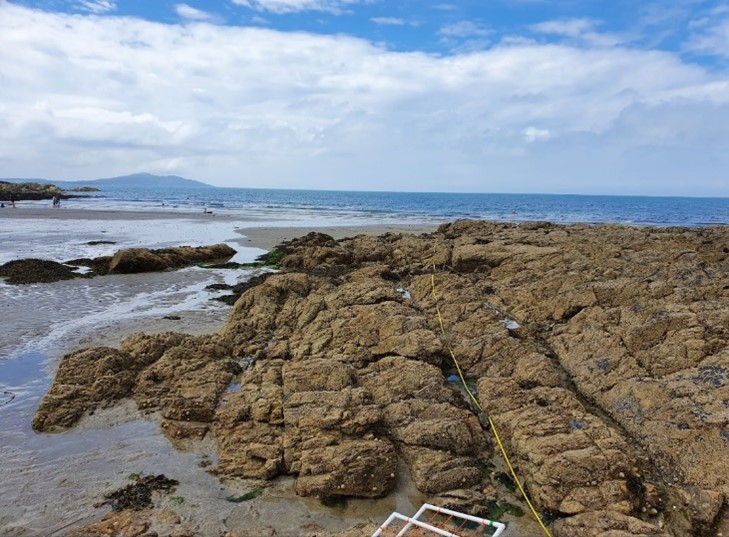
Author taking part in a rocky shore survey along the Isle of Anglesey coastline as part of a citizen science project. (Photos by Athena Allen)
Marine career paths
It is not possible to cover all available marine career paths in one blog. However, I have noted that the marine scientists that I have met throughout my short career have worked in one of three categories:
- Marine research – (academic or industry) researchers spend their time designing, carrying out, and reporting on studies in the field or in the laboratory, and are often the most specialised of marine scientists, focusing on one habitat, species, or process such as aquaculture.
- Marine environmental advisors – often work in fields such as renewable energy and fishing, providing expert advice on the impacts of these activities on marine life. For example, with the recent push for wind energy in the UK, marine advisors are required to ensure that offshore wind farms are built in a location and a manner which causes minimal negative impacts on the marine environment. In the field of fishing, marine advisors undertake stock assessments which are used to advice fishermen on catch limits for commercial species.
- Marine consultancy – a very broad field assisting in a range of projects from third party contractors. I currently work as a marine consultant and my projects range from assisting the German government in improving communication between conservationists and fisheries to improve the sustainability of shark fishing, to supporting the implementation of the European Commission’s Marine Strategy Framework Directive.
There are many wide-ranging roles within these three categories, and there is no expectation that you remain within one category throughout your career. However, identifying broadly the work that you are interested in will allow you to tailor job applications accordingly.
Link between marine and terrestrial
Having been in my current position for two years, I can say with confidence that the terrestrial work I undertake, despite not being my speciality, is both interesting and useful for my development as a marine scientist. Owing to its increased accessibility, I undertake terrestrial fieldwork more frequently than marine fieldwork. However, the experience that I gain from terrestrial fieldwork can be applied to marine surveying in several ways.
More generally, I have improved the speed with which I can taxonomically identify species on site, I am more proficient at working to a strict time schedule, and my ability to successfully follow a survey method to collect quick, usable data has greatly improved. Much of the common equipment used in terrestrial surveys is also used in marine/coastal surveys such as quadrats, thermometers, measuring tapes, and geolocators so I am well versed in the use of these tools. In a more specific example, by working as a bat surveyor throughout summer 2023 I have developed a competency with using acoustic equipment and I am now skilled at interpreting acoustic data within the field. This skill is transferrable to marine mammal surveys, as both bats and marine mammal species use sound frequencies to travel and communicate.

Author taking part in a dusk bat survey at an abandoned hotel using acoustic frequency equipment. (Photo by Athena Allen)
In the early stages of your marine career, whether that be as a young professional or as a career changer, I would recommend broadening experiences and skills by looking just outside of the field of marine science. Roles which are a combination of marine and terrestrial will allow you to develop yourself as an overall ecologist and help with networking.
Marine science is a fascinating, fast-developing and important field, and the task of ensuring that these special environments remain safe and healthy is no mean feat, so come and join the effort!
References
[1] Citizen Science | Marine Conservation Society (mcsuk.org)
[2] Citizen science projects | The Wildlife Trusts
[3] Citizen Science – The Rock Pool Project
About the Author
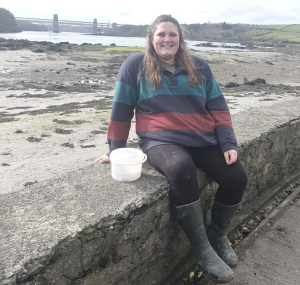 Athena Allen BSc(Hons) MSc is a Qualifying member of CIEEM and a Marine Ecologist at NatureBureau Ltd, a firm of environmental and ecological consultants. Her work as a consultant has allowed her to engage in a range of projects from European Commission environmental legislation to sustainable shark fishing and a number of research projects on her specialised taxonomic group of choice, cephalopods.
Athena Allen BSc(Hons) MSc is a Qualifying member of CIEEM and a Marine Ecologist at NatureBureau Ltd, a firm of environmental and ecological consultants. Her work as a consultant has allowed her to engage in a range of projects from European Commission environmental legislation to sustainable shark fishing and a number of research projects on her specialised taxonomic group of choice, cephalopods.
Contact Athena at: athena@naturebureau.co.uk
Blog posts on the CIEEM website are the views and opinions of the author(s) credited. They do not necessarily represent the views or position of CIEEM. The CIEEM blog is intended to be a space in which we publish thought-provoking and discussion-stimulating articles. If you’d like to write a blog sharing your own experiences or views, we’d love to hear from you at SophieLowe@cieem.net.
